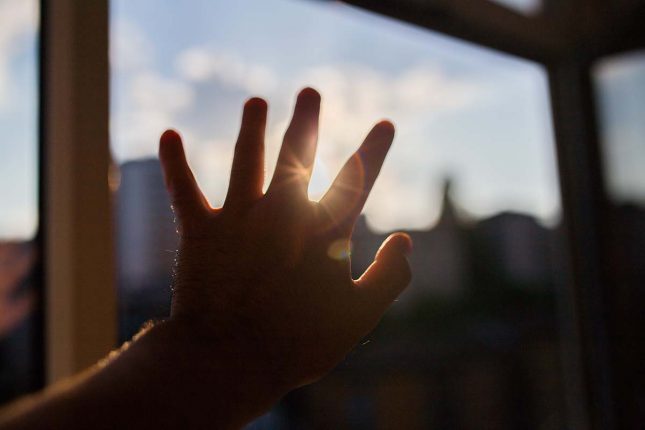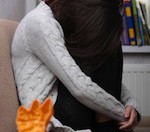This article on postnatal depression explores this common condition and the fears and myths that surround postnatal depression.
What is Postnatal Depression?
Postnatal depression is depression that is lasting, as opposed to the baby blues, which are typically short lived. It usually occurs shortly after the birth, although it may go unrecognised for quite some time. 10-15% of women have postnatal depression following a childbirth.
Who is at risk of getting postnatal depression?
Everyone is at risk of getting post natal depression. It is a mental condition that can affect all different people. Certain life events can trigger depression – it may be caused by a combination of a hormonal influence and a significant life event.
There are certain risk factors which can increase your chance of getting postnatal depression –
Depression in pregnancy or previously in your life, for example after a loss of a previous baby.
Social and financial problems
Isolation from family/whanau and friends, whether this is emotional or physical
Long labours and complicated births
Babies needing special care after the birth
Losing a baby or having a baby with an abnormality
Mothers whose babies have feeding problems and/or sleeping problems are more prone to postnatal depression.
How is postnatal depression diagnosed?
There is ultimately no objective diagnosis of postnatal depression. The diagnosis is usually made by a health professional, such as your family doctor or midwife, based upon symptoms or effects that the woman or her family/whanau report, which have lasted several weeks.
What are the usual symptoms of postnatal depression?
Postnatal depression can present differently from woman to woman and can change over time for each individual woman. The typical symptoms are –
Physical symptoms such as:
- Change in appetite (increased or decreased)
- Extreme tiredness to the extent of not being able to perform normal tasks of everyday living
- Poor sleep patterns.
- Changes in mood
- Irritability
- Low mood
- Tearfulness
- Lack of interest in sex, which can deepen relationship problems
- Lack of ‘joie de vivre’
Expressing beliefs, such as:
- Worthlessness
- Inability to cope
- Inability to concentrate
- Undue anxiety
- ‘not wanting to go on’
Some women also experience panic attacks (where the woman has all the physical symptoms of extreme fear, such as a pounding heart, loss of appetite, breathlessness) and she may develop phobias of going out or being confined in a space which she has never experienced before.
What treatments are available for postnatal depression?
Some women recover from postnatal depression without treatment. For some the condition is short lived; for others it may last several years.
The Mental Health Foundation of New Zealand recommend that treatment is initiated as soon as possible, in order to increase your chances of a full and speedy recovery.
Medical treatments
Many women with post natal depression are treated with medication, such as:
- Anti depressants
- Tranquillizers
Medication will go through to your breast milk, therefore if you are still breast feeding your baby will have to be carefully observed.
Natural therapies to help postnatal depression
Some natural therapists may also offer treatment to help control post natal depression, for example:
- Naturopaths
- Massage therapists
- Acupuncturists
- Aromatherapists
- Hypnotherapy
Ask the therapist how they will be able to help you and whether they are experienced in helping women with postnatal depression. Also ensure that any preparations are compatible with any prescribed medications you may also be taking and if you are breastfeeding, inform your natural therapist.
Psychological treatments
Many of these are accessible through the maternal mental health team, your doctor, or by private access:
- Counselling
- Individual or group psychotherapy
- Education in conjunction with the family/whanau to learn how to support the woman through her recovery.
- Cognitive behavioural therapy.
Many women may use a combination of natural therapies, medication and psychotherapy in order to become well again.
How to care for myself or my family/whanau member with postnatal depression
The relationships of the woman with her family/whanau and friends may be affected by the depression. It may seem hard to reach her. Support is available from Maternal Mental Health in New Zealand and it’s free following referral from your doctor or midwife.
Sometimes post natal depression can be linked with alcohol and drug dependence. Seeking help for this is crucial in overcoming postnatal depression.
Many women have problems forming close, lasting relationships with their babies when they are suffering from postnatal depression. These women will be dependent upon other family members and close friends to support them while they learn to love their babies. Much of this will be in the form of practical help, enabling the mum to rest and sleep, as well as being well nourished herself.
Some women are at risk of having suicidal thoughts and may attempt suicide. Occasionally hospitalisation will be necessary to ensure the safety of the mother and baby. All attempts will be made by the maternal mental health team to keep mum and baby together.
Ensure that each day there is something to look forward to – a walk, an hour to unwind, a meal to enjoy with family and friends.
Just remember that if it were just a case of ‘pulling your socks up’ all women would do so. No one would choose to feel low and frightened. There is no shame in having a mental illness and seeking help will be the bravest and single most important thing that you will do.
Useful articles and resources on post natal depression
Click here for information on the Baby Blues.
You may want to consider hypnosis for post natal depression if you’re finding the baby blues are really starting to get you down but you feel like you can work your way through it with a little help.
For information on the rare condition of Postnatal psychosis, visit our article in this section.







The problem with recognizing the symptoms of PND is that a lot of them can be ‘explained away’ as just being a part of having a new baby. Tiredness, loss of appetite, disinterest in sex etc can be put down to the whole birth or breastfeeding experience and simply not recognized. It is often vigilant friends and partners that will pick up on this first. Women can suffer from PND for ages un-necessarily because they don’t think about it happening to them.
I saw Emily Writes appear on “the cafe” a few days ago, it inspired me to start writing about my experience with severe postnatal depression, I’ve started to write a bit about what I went through, it’s pretty rough reading, but heartbreakingly honest and cathartic. Anyone searching for a real, uncensored story of SEVERE postnatal depression please check it out https://postpostnatal.wordpress.com/
I have a baby with serve reflux and it sucks he is the most unhappiest baby he’s on medication and every single little thing suggest we have tried, and i was told to go out to these groups but my baby would just cry while everyone else sat nicely and i couldn’t hear anything anyone say or listen because was to busy trying to stop my baby crying, so that kind of defeat the purpose of going out, which added more stress, i struggle every single day, to top it of my husband has left us because it was to… Read more »
What an incredibly difficult situation, my heart goes out to you. Please believe this will get better, because it will. Your baby will get older, solids will help, so will sitting up. Your baby won’t remember the discomfort of his early months but he will remember the comfort of having a brave, determined mum who loved him thru it. You will also feel better as your situation changes. I reckon you need to take all the help you can get and don’t feel guilty about it. They say It takes a village to raise a child, so gather your village… Read more »
Getting adequate help sounds on all the webpages so simple,but it is not quite like that. I was diagnosed with medium pnd by the gp he fist just wanted to give me drugs,did not talk to me about any other options or anything else I could do. After looking up the sideeffects of the medication I decided not to take it. so I asked for a referral to the dhb,got that but they just gave me a call and referred me on to an agency that tells you about options of coulcelling. So from there I had to go back… Read more »
Hi there! Your story sounds very simular to mine! Your GP and that horrible counsellor have let you down big time! Call Maternal Mental Health – make sure you really stress how you’re feeling and how this lack of support so far hasn’t helped, and make sure they take you on. A friends of mine with PND has been helped tremendously by them, and I only wish I’d known to call them. Keep at it – make sure you dont have that kiwi “I’ll be alright” attitude, and keep asking for help until you get it. You’ll really enjoy being… Read more »
It brought tears to my eyes reading this – it is exactly what happened to me. My boy is now almost 2 and the depression is no better. My boy was a severe reflux baby, screaming for 20 hours a day, with no family here to help and an 18 month old to also look after I deteriorated fast. After swallowing my pride and asking GP for help they referred me to a service that cost $80 an hour, clearly couldn’t afford this so went back and was offered drugs, wasn’t keen on this. At 3 months I rang maternal… Read more »
I feel tearful everyday… Tears at the day n on the night.. Nobody to talk to. Partner think i just having complaints and dun bother hw i feel. feel suicidal everyday, feel like jumping down w my baby and everything will be alright.. Feeling tired.but unable to slp at night. Very stressed w the family in laws side… Dun feel like seeing their faces at all.eat for the sake.of.baby nutrition cos breastfeeding. Thinking i cant wake up if baby cries at nite. Alot of things in my mind…everyone is like against me.
Hi Yannz87,
I’m so sorry to hear that you are having such a tough time of things. Having a baby can be really challenging and it sounds like you feel like you don’t have much support. Are you able to talk to your family? Your mum or sisters or friends? At times like this, it’s really important to talk to people to make sure that you are keeping yourself and your baby safe. If you want to email me at rochelle@kiwifamilies.co.nz, I may be able to put you onto someone you can talk to.
Hang in there!
Rochelle
I have set up a new online mutual support group/forum as a space for mums to come together and share experiences. I found it so helpful when I was ill with PND. It’s free to use and anonymous too. All welcome Find us at http://www.pni.org.nz
Take care
Kia x
My friend who has 3 month old twins has just been diagnosed with PND. I think the enorminty of having to care for twins and having no family support has taken its toll. I want to help out but am at work all day and by time i get around her hubby is home and i feel in the way. I’m not sure if there is anything that i can do only let her know i am there if she needs me and if they want a night out i am available to babysit. She hasnt gone out yet and… Read more »
Hi Jotijojo Oh that is so tough… having babies is really tough without having two… and especially tough with no family around. Has your friend joined her local multiple birth club: http://www.multiples.org.nz/? They can be a great place to find support. One thing I really appreciated when my babies were small (singles, not twins 😉 ) was when people brought me meals that I could pop in the freezer for the tough days… perhaps you could organise some freezer meals with some friends? Also, is your friend getting some kind of medical support or counseling? Thanks for the comment- she’s lucky… Read more »